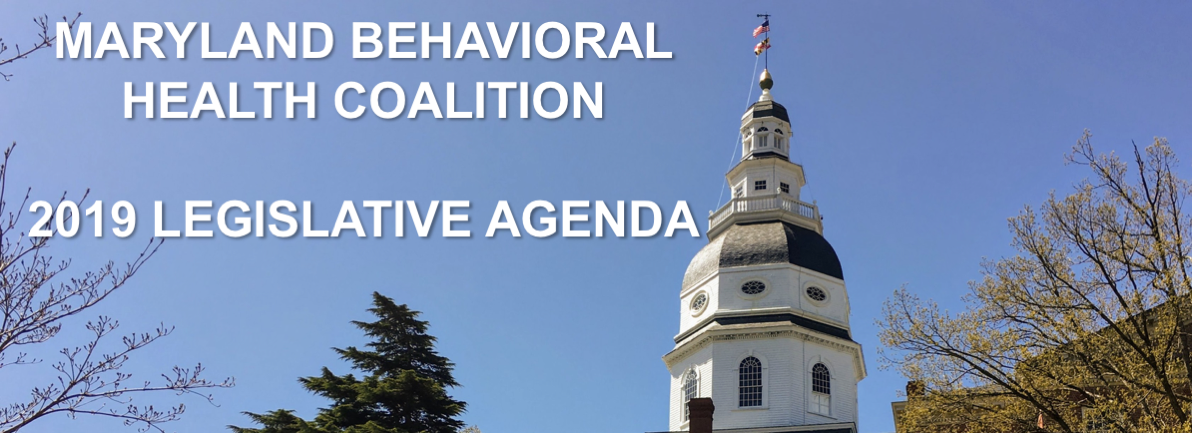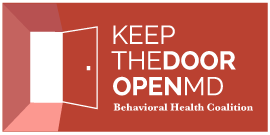
Maryland Behavioral Health Coalition 2019 Keep the Door Open Agenda
(Available for download here)
Maryland has taken several critical steps in recent years to address longstanding and pervasive barriers to treatment for children and adults with mental health and substance use disorder needs. The General Assembly has adopted and enacted Behavioral Health Coalition priorities to boost funding for community behavioral health services, expand local crisis response programs, improve access to treatment with telehealth, and improve service outcomes and accountability through increased data reporting and implementation of measurement-based care.
But our work is far from complete. Maryland overdose deaths increased in 2017 for the seventh year in a row to an all-time high of 2,282. Opioid-related deaths rose again over the first three months of 2018. The suicide rate in Maryland is now 8.5 percent higher than it was in 1999, and demand for mental health and substance use treatment services has steadily increased since 2008, with over 260,000 Marylanders now relying on the state’s public behavioral health system.
In 2019, the Coalition will continue working to ensure that every Marylander has access to high quality behavioral health treatment. We strive for a system that leaves no one behind, including traditionally marginalized and underserved communities such as older adults, children and youth, Marylanders with commercial insurance, incarcerated individuals, veterans, non-English speaking populations and those in rural communities. Our priorities for 2019 are:
Increase school behavioral health supports to improve student outcomes
The Kirwan Commission is exploring options to enhance public education in Maryland. The Commission is expected to offer a series of recommendations to expand school behavioral health services and supports, which have been shown to improve student health and educational outcomes. In addressing the full range of Kirwan recommendations, we must prioritize the adoption and funding of those related to school behavioral health.
Fully fund the “Keep the Door Open” budget commitments
When the Maryland General Assembly passed the HOPE Act in 2017, it included a long-overdue, multi-year behavioral health provider rate increase. In 2018, the legislature enacted multi-year funding initiatives to expand crisis response services and improve the delivery of behavioral health care in primary care settings. We must keep these prior budget commitments in FY 2020 to ensure Marylanders have access to mental health and substance use treatment services when and where needed.
Promote medication-assisted treatment and other substance use treatment options
Medication-assisted treatment (MAT) is an evidence-based practice that combines behavioral therapy and medications to treat opioid addiction and other substance use disorders. Although this is increasingly considered the gold standard for substance use treatment, it is woefully underutilized. The legislature should ensure that Maryland laws and policies encourage and do not restrict access to all forms of MAT and other substance use treatment options. We must eliminate all restrictions to MAT, increase reimbursement for the delivery of this life-saving service, and ensure access where it is needed most, including Maryland correctional facilities.
Divert behavioral health patients from emergency rooms and hospitals
Difficulty accessing behavioral health services in the community has forced more and more Marylanders to seek care in costlier emergency departments. Existing laws and nascent initiatives to improve access to and delivery of behavioral health care can help to mitigate the situation, but they must be properly enforced, appropriately structured and thoughtfully expanded to ensure their effectiveness. We must enforce existing mental health and substance use parity laws, incorporate behavioral health screening and referral measures into the Maryland Primary Care Program, and expand programs that target treatment and resources to the hardest-to-engage individuals.
Contact: Dan Martin, Mental Health Association of Maryland, 410-978-8865
